Bianca Wallace: I was diagnosed with multiple sclerosis at 25. I found a better life
My diagnosis was the moment when everything became clear. I was living the wrong life with the wrong husband, in the wrong job and in the wrong place.
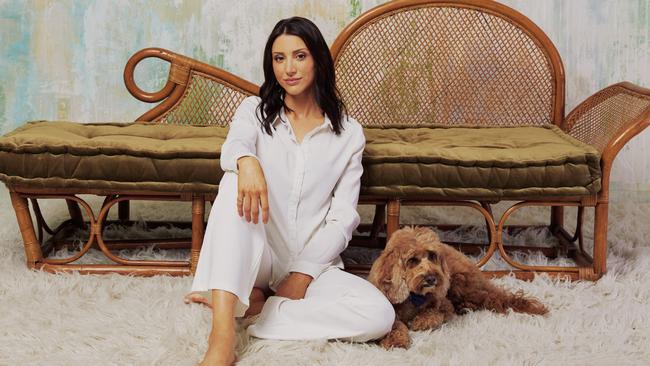
Yesterday was a good day. I eased out of bed with a spring in my step. Yo and I walked to a local café, before wandering round the shops, idling the day away. Wild Hollywood lifestyle, right?! But this was a day filled with joy and excitement, and I treasured every moment. Because Yo (the person you might know as Ioan Gruffudd, who starred in the Australian TV series Harrow) didn’t have to help me out of bed as I waited for the agonising pain that often incapacitates me to subside. I didn’t need my walking stick, nor someone to help me hold a mug of coffee because I had no control of my right hand. I didn’t sit there exhausted, blind in one eye, willing the feeling in my legs to return and crying: “Please let me live again!”
There are two Biancas, and I often have no idea which one I’m going to be. There’s the one you might have an inkling of from my social media posts. The life and soul, habitually upbeat, glam if I can, and always smiling. And there’s the one with multiple sclerosis, numb, spasming, shaking from tremors and unable to do the simplest of tasks. The unpredictability of MS is as much of a curse as the symptoms.

Around 130,000 people in Britain are living with this disease, and 33,000 in my native Australia. It causes the body’s immune system to attack nerve cells in the brain and spine, which leads to mobility and balance loss, memory and cognition issues, vision problems, loss of motor skills, muscle spasms, bladder issues, fatigue and more. There is no cure. In the UK, the lifetime risk of developing it is about one in 330. If it’s already in the family, the chances can be as high as one in 40.
My life is extraordinarily difficult now. When things are hard I sob to Yo about not feeling strong enough to face what is ahead of me, alongside the guilt I feel that he has entered into such a complicated journey. Yet my life is also one full of opportunity, adventure, love and empowerment. I am absolutely the person I want to be, doing the things I want to do – not in spite of the MS, but because of it.
To explain why, I need to tell you about the third “me”, the person I used to be. Nearly five years ago, when I was just 25, my world caved in when my first symptoms appeared. It started at work, a July day just like any other in the accounts office of a firm in Brisbane. Except this time I couldn’t arch my fingers around my pen or even lift it. Nothing like this had ever happened to me and I hadn’t felt fear like it before.
I was rushed to the emergency room, and when I fell over attempting the “heel-to-toe” walking test I remember everyone staring in shock while I awkwardly laughed at myself on the floor. That was when I realised something was truly wrong with me.
The next few days were a blur of panic and pain. I lost the use of my right side, my foot turned in and flipped the wrong way. I couldn’t walk, my hand curled up and within days I began to develop a tremor that became so aggressive it shook my body.
An MRI scan revealed lesions across my spine and brain. I asked my doctor to tell me what it all meant, and my blood ran cold when he replied: “You told me a long time ago that you have a distant relative with multiple sclerosis …” He finished that sentence with an apologetic shrug.
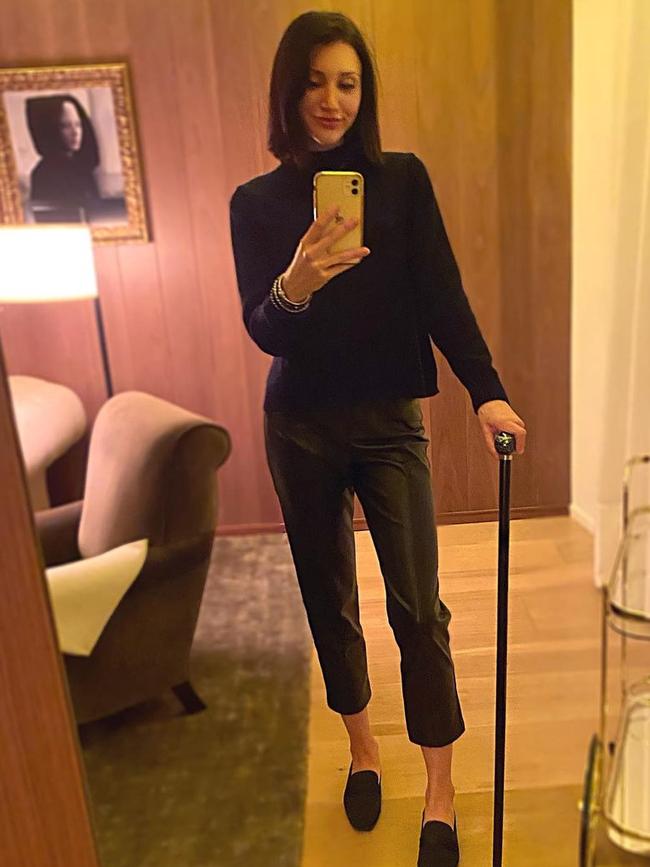
The following month I underwent spinal surgery, and two months after that I received the formal diagnosis of what I most feared: it was indeed MS. A disease that seemingly emerged from nowhere, that I wouldn’t be able to control and that I would have to live with for the rest of my life.
What compounded things was that my personal life was a mess. I was stuck in a terrible marriage with no support. My now ex-husband would disappear for days, and we argued about his gambling and him being irresponsible with our moneymoney. Bad enough when I didn’t have to worry about my health, but utterly devastating with the sudden MS diagnosis. When he was around he would label me “the retard” due to my lack of walking ability, leaving me to stare at the ceiling wondering if I should end my suffering – and remove the burden I felt I had forced upon him.
Even worse was the reaction of a family member who laughed when we discussed the idea of me ending up in a wheelchair, as if it was some kind of awful joke. I felt mocked and rejected, alone in a world that felt like it would exist much better without me.
Then, at my lowest point, everything changed. It was like an epiphany. Call it survival instinct if you want, borne out of sheer terror. A fear of looking in the mirror and seeing someone who had given up on life and whom life had abandoned. A shell of a person, not a whole one.
That day, three weeks after my diagnosis, I woke alone in our townhouse. Instead of the emptiness that had consumed my life in just a few short, shocking months, I felt an urge to change everything, to use this terrible disease to my advantage. It was like an epiphany. My whole body started to tingle, an energising sensation, and the adrenaline made me shoot up out of bed. For me it was a moment when everything became clear. I had to ditch my job, to forget about a longed-for career shift into marketing. Marketing … what on earth was I thinking?! It dawned on me – because of the MS, I’m certain – that I was living the wrong life with the wrong husband, in the wrong job and in the wrong place.
Wanting to die compelled me to pull myself together. I still remember that day in late 2018 as one of the best of my life. Ironic, because I was in such despair. And yet that feeling of defiance lit a fire that wouldn’t stop burning.
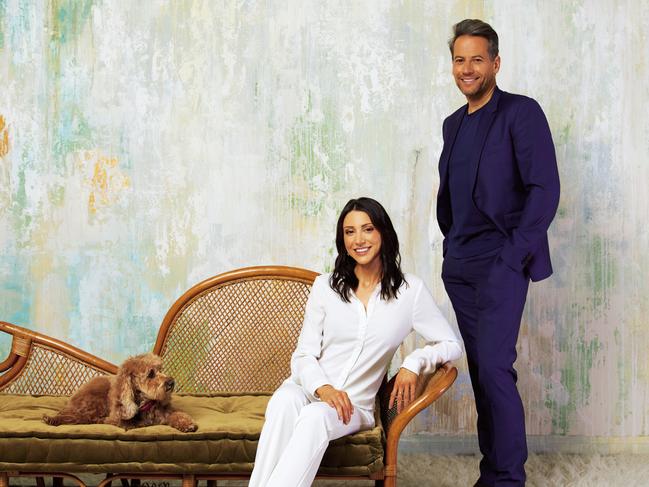
Today, dating a well-loved actor, with an apparently glamorous lifestyle and all the advantages I’m lucky enough to enjoy, you might think: “Well, it’s all right for you.” We do whatever we can to make it a beautiful life. Yo is the most wonderful partner; he is aware that our life together is not going to be easy, and yet doesn’t flinch. Thankfully, my sense of humour is stronger than ever now because there’s no time for self-pity here, just as those around you need to feel they can joke along with you. I learnt that it is just so they don’t end up in despair on your behalf.
The diagnosis forced me to take control – to change my world into the one I wanted it to be, not the mess that it was.
As many others have experienced when in an abusive relationship, I’d tried to leave my marriage multiple times before I actually got out. Escaping an unhappy marriage can be incredibly difficult, especially with the proliferation of social media. Back in January 2020, on the day of another debilitating encounter with my then husband, I was admitted to hospital in an ambulance and admitted after a painful MS episode in which my whole body curled in, brought on by the stress of the encounter. My neurologist told me that my future was already difficult and unpredictable, and should I stay in the marriage my life would deteriorate rapidly. The MS would take my future if I didn’t make the right decision. That moment was crucial in my journey. I realised that the MS, yet again, was saving my life.
So many with this condition share a desire to live without regret. I dusted myself off, got an agent, and pursued the acting career I always thought was beyond me.
–
“I’ve learnt that it’s the people around you who provide the real strength.”
–
I continue to fight this awful illness each day, enjoying every pain-free moment I can. I have no idea what tomorrow will bring but now, that’s just fine for me. I have now had 12 MS attacks to my brain and spine – the kind that incapacitate me for weeks and leave me writhing in pain, unable to walk, sometimes unable to see out of my left eye or even write. These attacks can grip me in a moment. Last year I enjoyed two months in remission – my longest ever – and felt joyful every single second. Yet I knew that at any time the MS could take over. And it did. Suddenly, one morning, out of nowhere.
During an attack I can be bedridden for a day, for a week, on and off for months, wondering how I’m going to get through the next hour, let alone each day. But when I’m not like that, I’m the Bianca I want to be: the one who embraces every experience, who’s never scared, who sees life as an exciting journey, who knows life is too precious to be lived for everyone else.
I got lucky because of the MS. Many other people with the same diagnosis will react with horror at those words but, for me, it’s true. My MS has been a blessing in disguise.
Before Yo and I entered into a relationship in 2021, I gave him a get-out-of-jail card in the form of a nerve-racking conversation about the reality of my illness and what it would mean for his future as well. I asked him to spend the next few days seriously considering this and to let me know his decision; I assured him there would be no hard feelings. Yo didn’t hesitate for a second, listing all of the reasons he was in love with me and why he was here to stay, and that no MS diagnosis or scary future would deter him.
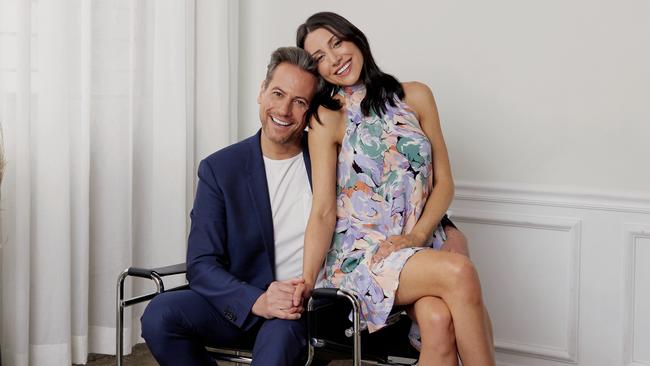
Dealing with uncertainty is one of the toughest things about this disease. I’ve tried to turn that to my advantage, to take back control. That’s why the Stop MS campaign is so important. Firstly, because we need more investment in research to improve diagnosis and treatment. And secondly, because raising awareness of these issues could transform the lives of those with MS and help equip them to fight back.
I still have moments of grief, when stress makes my condition worse, when the spasms of pain are unbearable. Yo is always there to pick me up – literally – and to remind me of all that I’m so grateful to have. Being upset about it won’t change a thing. You try to build a fortress around yourself to cope, but I have learnt that it’s the people around you who provide the real strength and protection, who help you to navigate life.
I’m privileged to have such support; I know that not everyone with MS has this. But when you’re told at the age of 25 that the doctors aren’t sure if you will walk again, you have to count your life as a blessing because, for all the awfulness that my disease brought, it is blessed. I was once stuck in a nightmare, and MS helped me to break free from that.
I remember when I posted a video on Instagram revealing my MS. I’d kept it secret for three years, with only family and close friends knowing. I wanted to show defiance against having my illness publicly exposed before I was ready. I didn’t want to be cowed by it, to keep things hidden like I once did, and now I will always do that no matter what the future brings.
I wrote the forthcoming film A Ray of Sunshine in the hope that it will help address the stigma surrounding chronic illness and difficult relationships. My goal is to help those who need it to see that there is a way through the pain, and that it begins with our own courage.
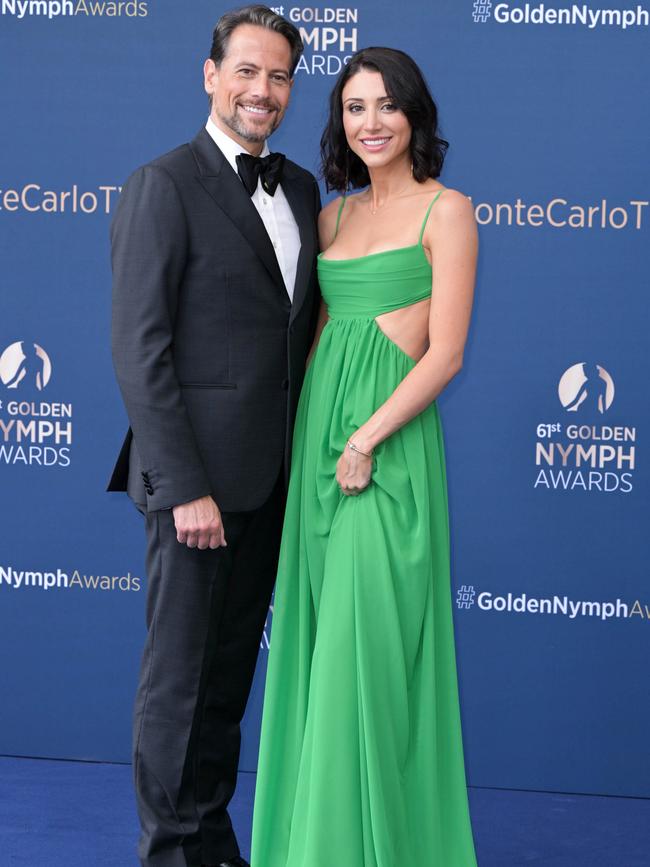
People may not have the kind of empowering epiphany I did. But if there’s one message I have, it’s that we can’t let this terrible disease define and control us. We have to live the best and most authentic life we can, free of regret. And to remind everyone around us – Yo, I’m talking to you! – that your positivity, energy and love helps us to keep going.
Today, hand on heart, I’m living my best life. I hope a story like this can inspire not just those living with MS but those closest to them and everyone in between, who forget that living life in the present is so much more important than worrying about an uncertain future.
The Multiple Sclerosis Society has launched the Stop MS appeal to raise £100 million to fund ground-breaking research to slow and stop progression in MS. Find out more at mssociety.org.uk, phone 0300-500 8084 or email supportercare@mssociety.org.uk




To join the conversation, please log in. Don't have an account? Register
Join the conversation, you are commenting as Logout